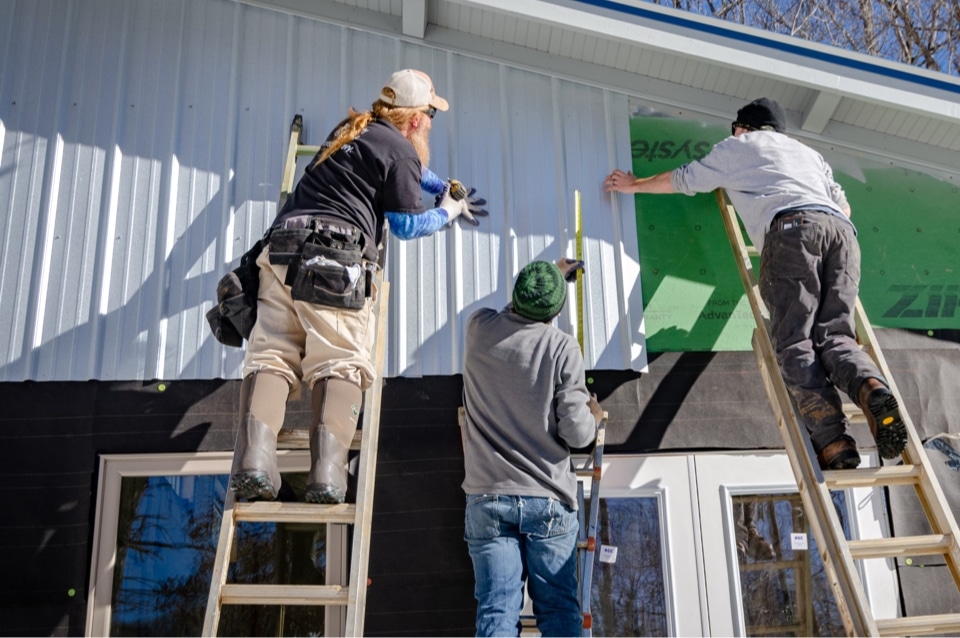Are You Ready for a Carpentry Apprentice? If So, What Next?

Businesses can gain a lot from taking on an apprentice. More than simply training the next generation of tradespeople, they can also benefit from fresh perspectives, boosting workplace culture, and of course, cost-effective labour.
But there are also some serious considerations to take into account before hiring an apprentice. It’s not simply a way to get cheap labour—you also have to take responsibility to train and further your apprentices’ learning.
If you’re thinking of taking on a Certificate III in Carpentry apprentice, here’s all that you need to know about how it works and how to ensure that your business is ready to offer the best apprenticeships in Australia.
Block Release vs On-The-Job Training
The first step is deciding the format of training that works well for your business model. Many TAFE building and construction courses require apprentices be allowed time off to attend their study commitments. It might be a day, a week, or a month when your apprentice is not able to work onsite. For some, study commitments might require travel time and accommodation if their building and construction courses institution is far away. If you choose this route, make sure you talk to your apprentice upfront about the time off they require, so that there are no surprises down the track for you.
If you’d prefer to have your apprentice on site every day, then you might consider alternative institutions that are more flexible to your ongoing needs. Builders Academy Australia, for example, enables apprentices to complete all of their coursework on the job—meaning no absenteeism for you, and fewer disruptions to your day-to-day workflow. What’s more, we’re known to deliver some of the best apprenticeships in Australia.

Consider Who’s The Right Mentor
A Carpentry apprentice/mentor relationship is two way. While you want to find the right apprentice to learn the ropes, candidates will similarly be looking for someone who is an expert in their field and willing to take someone new under their wing while they are studying their Certificate III in Carpentry. It will mean taking time out of your day to train them, guide them, and chat about their career ambitions.
Being a good mentor is about so much more than having someone watch you while you work. If you do it right, you’ll be rewarded with a hardworking, loyal and highly skilled graduate who is well placed to grow your business. Building and construction courses can only teach so much—at the heart of any bright young apprentice is a great mentor. Which is why Builders Academy Australia will offer you or your nominated mentor, apprenticeship support to ensure the success of your apprentice.
Go Through The Paperwork and Obligations
If this is your first Carpentry apprentice, then it will pay to do some research and make sure you know your obligations around wages, payslips, and rights around leave and termination. How about tax, super, and WH&S? Like your employees, apprentices need to be covered by your duty of care. The good news is that there is plenty of apprenticeship support in Australia and at Builders Academy Australia. Check out FairWork’s Guide to taking on an apprentice for starters.
Advertise Your Role
Now that you’re ready to take someone on, advertise your role on online job boards and social media. Ensure you note that you’re looking for Certificate III in Carpentry applicants. The clearer you are on the requirements and what you can offer your carpentry apprentice, the better. Write a letter of offer, and make sure to give them a good introduction to the workplace. This way, day one can go off without a hitch.
If you’re too busy to advertise and interview lots of applicants, Builders Academy Australia offers an end-to-end recruitment service at no cost and can place you with the right carpentry apprentice for your business. You can find out more here.
Find Varied Work For Them
Many businesses find that striking the right balance of work and learning with an apprentice can be tricky. There needs to be enough work—and varied work—to not only keep them busy but to teach them all the skills they need to complete their apprenticeship. On the flip side, too much work and you might let their learning slip down the priority list. For apprenticeships to work, both parties need to put in the work.
Be Open Minded
For a Certificate III in Carpentry apprenticeship to be successful, for both you and your apprentice, you need to make the working environment as productive and helpful as possible. You’ll be imparting your wisdom, but they might also help you to consider new ways of doing things. Rather than being tempted to brush them off as inexperienced, be open to all input and suggestions. Remember, they’re currently studying building and construction courses. This means they have access to best-practice building and construction learnings that could help grow your business.
Looking to bring on a carpentry apprentice? Contact our team at 1300 LEGEND (1300 534 363) or request a callback and we will get back to you with all the information you need.
